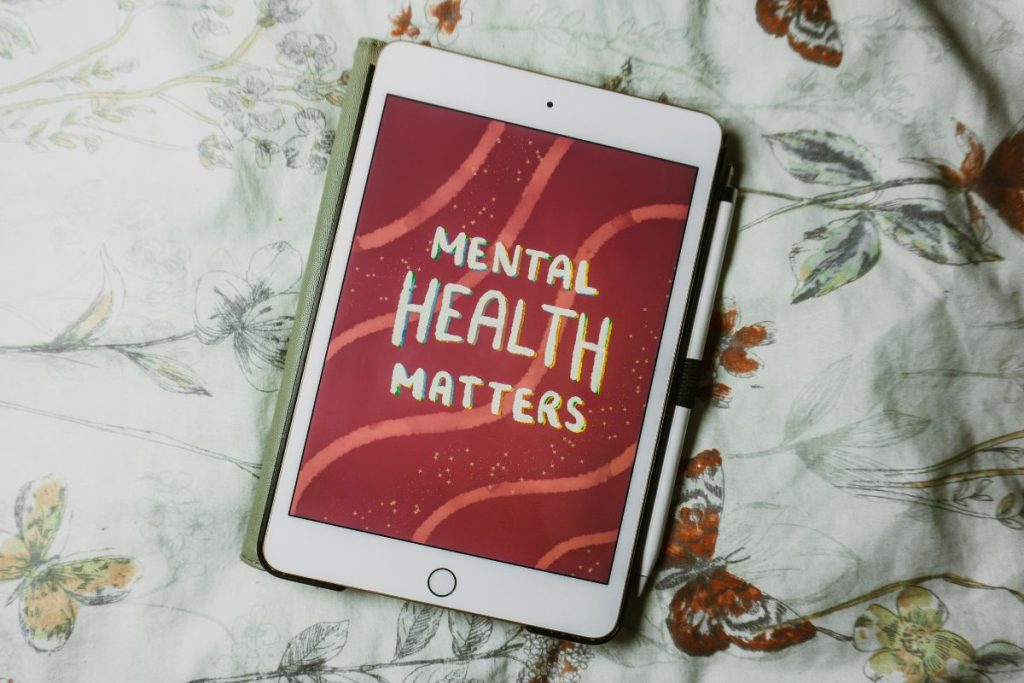In an era where mental health challenges are reaching unprecedented levels, artificial intelligence is emerging as a powerful ally in providing accessible, personalized, and stigma-free psychological support.
From reducing anxiety to combating loneliness, AI companions are transforming how we approach mental health support and wellness in the digital age.
The Mental Health Crisis: Why We Need Innovation
Mental health statistics paint a concerning picture worldwide. According to the World Health Organization, one in four people will be affected by mental health disorders at some point in their lives. The COVID-19 pandemic has only exacerbated these challenges, with anxiety and depression rates skyrocketing globally.

Traditional mental health services face significant barriers: long waiting lists, high costs, geographical limitations, and persistent stigma. Many individuals suffering from mental health issues never seek help, leaving millions without proper support.
This is where artificial intelligence steps in as a game-changer, offering immediate, accessible, and judgment-free mental health assistance.
Understanding AI Companions in Mental Health
AI companions are sophisticated conversational systems designed to provide emotional support, therapeutic conversations, and mental health guidance. Unlike simple chatbots, these advanced systems use natural language processing, machine learning, and psychological frameworks to engage in meaningful, therapeutic interactions.
These digital companions can:
- Provide 24/7 availability for crisis support
- Offer personalized coping strategies
- Track mood patterns and triggers
- Deliver evidence-based therapeutic techniques
- Create safe spaces for emotional expression
Modern AI chatbot software demonstrate how conversational AI can create genuinely supportive relationships, offering users a judgment-free environment to explore their thoughts and emotions while developing better communication skills and emotional intelligence
The Science Behind AI Therapy

Modern AI mental health platforms incorporate proven therapeutic approaches such as Cognitive Behavioral Therapy (CBT), Dialectical Behavior Therapy (DBT), and mindfulness-based interventions. The technology analyzes conversation patterns, emotional indicators, and user responses to tailor interventions specifically to individual needs.
Research from Stanford University and MIT has shown promising results, with AI-powered mental health interventions demonstrating significant improvements in anxiety and depression symptoms. A 2023 study published in the Journal of Medical Internet Research found that users of AI mental health companions showed a 40% reduction in anxiety levels after just four weeks of regular interaction.
Breaking Down Barriers to Mental Health Care
One of the most significant advantages of AI companions is their ability to eliminate traditional barriers to mental health support:
Accessibility: Available instantly through smartphones, tablets, or computers, AI companions don’t require appointments or travel. This is particularly beneficial for individuals in rural areas or countries with limited mental health infrastructure.
Affordability: While traditional therapy can cost hundreds of dollars per session, AI companions offer continuous support at a fraction of the cost, making mental health care accessible to broader populations.
Anonymity: Many people hesitate to seek mental health support due to stigma. AI companions provide a judgment-free environment where users can express themselves openly without fear of social repercussions.
Consistency: Unlike human therapists who may be unavailable during crisis moments, AI companions provide consistent support whenever needed, including during late-night anxiety episodes or weekend emotional crises.
Real-World Applications and Success Stories

Several AI mental health platforms have already demonstrated remarkable success:
Crisis Prevention: AI companions can recognize early warning signs of mental health crises by analyzing conversation patterns, mood indicators, and behavioral changes. They can provide immediate support and, when necessary, connect users with human professionals or emergency services.
Anxiety Management: Through guided breathing exercises, cognitive restructuring techniques, and personalized coping strategies, AI companions help users manage anxiety in real-time situations.
Depression Support: By offering daily check-ins, mood tracking, behavioral activation techniques, and supportive conversations, AI companions provide ongoing support for individuals dealing with depression.
Social Skills Development: Many users find that practicing conversations with AI companions helps them develop better communication skills and emotional intelligence, which they can then apply in human relationships.
The Technology Behind Emotional Intelligence
Modern AI companions utilize sophisticated algorithms to understand and respond to human emotions:
Natural Language Processing (NLP): Advanced NLP allows AI to understand context, emotion, and subtle nuances in human communication, enabling more natural and empathetic conversations.
Sentiment Analysis: AI systems analyze text and voice patterns to gauge emotional states, allowing for appropriate responses and intervention timing.
Machine Learning: Continuous learning from interactions helps AI companions improve their responses and better understand individual user needs over time.
Predictive Analytics: By analyzing patterns in user behavior and communication, AI can predict potential mental health crises and provide proactive support.
Addressing Concerns and Limitations
While AI companions offer tremendous potential, it’s important to acknowledge their limitations:
Human Connection: AI cannot fully replace human empathy and the therapeutic relationship between counselor and client. However, they can serve as valuable supplements to human care.
Privacy and Security: Mental health data is highly sensitive. Reputable AI companion platforms implement robust encryption and privacy protection measures to safeguard user information.
Crisis Situations: While AI can provide immediate support and crisis recognition, severe mental health emergencies still require human intervention and professional care.
The Future of AI Mental Health Support

The field of AI mental health support continues to evolve rapidly. Emerging developments include:
Virtual Reality Integration: Combining AI companions with VR technology for immersive therapeutic experiences and exposure therapy.
Biometric Monitoring: Integration with wearable devices to monitor physical indicators of mental health, such as heart rate variability and sleep patterns.
Personalized Medicine: AI systems that can recommend specific interventions based on genetic, environmental, and behavioral factors.
Multi-Modal Interaction: Future AI companions will incorporate voice, text, and visual cues for more comprehensive emotional understanding.
Implementing AI Mental Health Solutions
For individuals interested in exploring AI mental health support, consider these guidelines:
- Research Platforms: Choose AI companions developed by reputable organizations with clinical backing
- Set Realistic Expectations: Understand that AI complements but doesn’t replace professional mental health care
- Maintain Privacy Awareness: Review privacy policies and data handling practices
- Regular Evaluation: Assess the effectiveness of AI support and seek professional help when needed
Conclusion: A New Era of Mental Wellness
AI companions represent a revolutionary approach to mental health support, offering accessible, personalized, and stigma-free assistance to millions of people worldwide. While they cannot replace human therapists entirely, they provide valuable supplementary support that can bridge gaps in traditional mental health care.
As technology continues to advance, we can expect AI companions to become even more sophisticated, empathetic, and effective in supporting mental wellness. The future of mental health care is not about choosing between human and artificial intelligence – it’s about leveraging both to create comprehensive, accessible, and effective support systems.
For those struggling with mental health challenges, AI companions offer hope: immediate support is available, help is just a conversation away, and no one has to face their mental health journey alone. The integration of artificial intelligence in mental health care represents not just technological advancement, but a fundamental shift toward more inclusive, accessible, and proactive mental wellness support.
If you’re experiencing a mental health crisis, please reach out to local emergency services or mental health professionals immediately. AI companions are valuable tools for ongoing support but should not replace professional care in emergency situations.
Images courtesy of unsplash.com and pexels.com.












